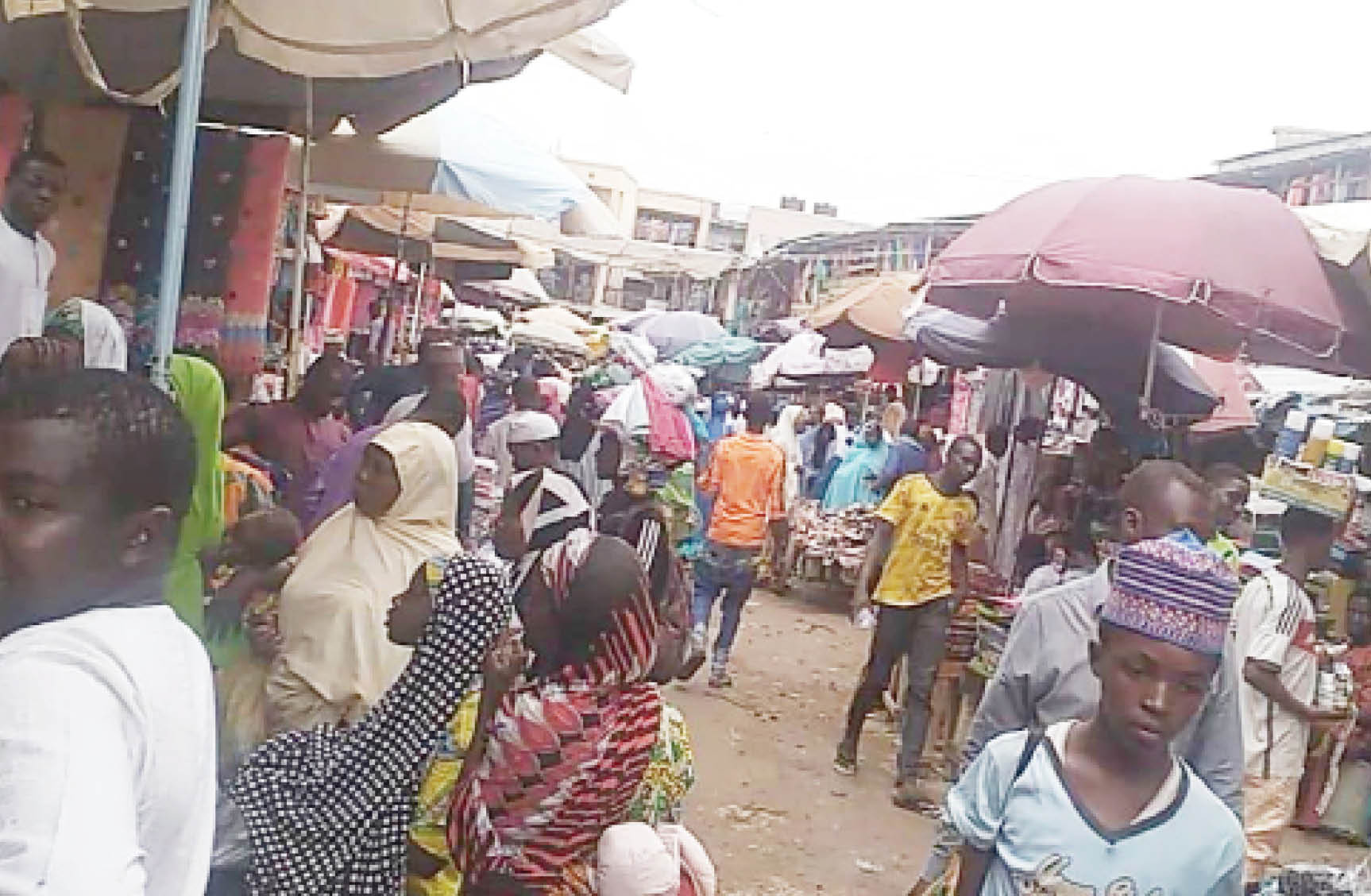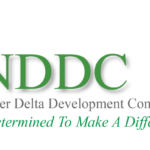Big city markets thronged by huge crowds of sellers and buyers with accompanying hustling and bustling are gradually losing the steam. This follows influence of technology such as online or social media tools that people now leverage instead of physical appearance in the markets to carry out buying and selling activities.
Daily Trust on Sunday captures the atmospheres of some of the markets where trading activities fester with instagram, WhatssAp, phone calls, online banking and POS machines as traders share mixed feelings on the trend.
- UNICEF expresses worry over increased female genital mutilation in Nigeria
- How I became ABU’s VC at 40 (II) — Ango Abdullahi
Live activities that were the order of the day in Nigerian big city markets have become history as they have been eclipsed by technological advancement, particularly social media such as Instagram, WhatssApp and online banking.
Findings by our correspondents who visited some of the markets across the country, showed that most traders commonly carry out their marketing activities online.
In a chat with our correspondents, they shared mixed feelings on the trend.
Some of them are delighted that the technology saves people from travel risks in the wake of the current insecurity challenge in the country, enhances quick, easy sales and transactions, huge profits as well as employment for youths who earn some money for assisting traders in using social media tools iPhones.
Others opined that the markets had become scanty as a lot of people no longer attend physically even as network challenge has the tendency to hamper transactions.

Tejuosho, Lagos, now scanty
A dealer in Chiffon shirts and gowns at Tejuosho Market, Yaba, Lagos, Miller Chukwu, explained that the introduction of technological innovations enhances huge sales and profits for traders in the market.
“Ordering goods online has largely helped to improve our businesses. A lot of ladies are now into cloth sales business because it is very convenient for them. They come here to buy from us and resell online,” he said.
He added: “I also display some of my goods online. I make sure to collect the contacts of those who come here to buy from me. When I display my goods, they make orders and I deliver to them. It makes it easier and saves a lot of cost for customers,” he said.
Chukwu, however, explained that he was not enthusiastic about use of POS machines (which is also a technological innovation) to make payment.
“I know it is a new innovation, but I prefer to be paid in cash, or at most make transfer. This is because most dealers do not want their money to be withheld because we, too, can go to the market anytime to buy our products and need money to do that,” he said.
Henry, who sells both male and female jeans trousers said delightedly that he had been in the business for more than five years. He however, expressed worries that technological innovations in marketing are affecting his business negatively.
“Look at how scanty this place is, compared to what it used to be before. People no longer come to the market. They prefer to buy things online because they do not want to go through the stress of coming to the market,” he said.
He, explained that in terms of finances, the innovations were very useful.
“If you do not have cash, you can transfer. Some people come to this market without any prior intention of buying anything. But when they see what they like, they buy through transfer or POS.
“Although some customers would complain that they do not have money for extra charges on POS, but when we consider the amount of goods they buy, we take responsibility for the POS charges ourselves,” he noted.
Chukwu, however, said that the tendency by federal government officials to clampdown on shop owners by dismantling their shops had been a nagging challenge in the market.
“We face a lot of challenges in this market, especially from government agencies. Sometimes, taskforce and KAI officials come here to scatter this place. We also have to pay levies to the market authorities, daily and weekly. Whether we make sales or not, they collect their dues,” he said.
Kantin Kwari traders: Technology has expanded our customer base Kantin Kwari Market is believed to be one of the biggest textile markets in the country. It is the major hub of varieties of fabrics and largely serves the clothing needs of the people of Nigeria and beyond.
Our correspondent gathered that the market located in the heart of the city of Kano, the North’s commercial nerve centre, supplies textile materials to many countries in the West, Central and Northern parts of Africa.
Though it is one of the oldest markets in the North and throve with live marketing activities by huge number of people that thronged it, Kantin Kwari, too, has technological tools and innovations that have also become a trend at the market. Our correspondent gathered that the innovation which trends on online marketing via cash transfer and or through POS became popular due to its various advantages, as it helps traders to supply products easily and distribute them without travel risks on their part as well as their customers.
A couple of traders who spoke to our correspondent, said that the technology had saved them a lot of risks and money that they should have spent on travels, especially in the wake of the current security challenges in the country.
A trader, Abdullahi Bala, said it had been long since he travelled to Aba in Abia State and Lagos State that are the hubs of most fabrics, except those imported from abroad.
“All we do now as traders is to just establish contacts with traders online, especially WhatsApp, Instagram and other social media handles, and then we start transacting our businesses via banking. They send us samples of goods on WhatsApp, then we select and transfer the money to them via banking and they send us the goods,” he said.
“This has reduced the stress and risks involved in travelling to the markets. Although samples of goods may be limited and also limit the amounts of choice, compared with those who travel to the markets, the advantages of the technology outweigh the disadvantages. Some of us buy our goods from Lagos, while others buy from Ariaria International Market, Ungwa Road and Aba Shopping Centre, all in Aba, Abia State,” Bala added.

Recall that last year, about 18 traders in the market were kidnapped in Kogi State, while travelling to one of the markets in the South. Bala said such risk had been minimised by technology.
Similarly, another wholesale trader in the market, Alhaji Sule Bagobiri, said the technology has expanded their customer base beyond Kano.
“Now, we have customers who buy goods from us from different parts of the country, they only send us money and we send them the goods.
“Also, for retail traders, now they don’t only rely on customers who come to the market physically. They only share their samples on WhatsApp, Instagram or other social media handles, and prospective buyers contact them and have their goods delivered to them via motor parks,” Bagobiri added.
Daily Trust also learnt that some youths in the market earn a living by using cameras of sharp smart phone devices like iPhones, just to snap pictures of fabrics for traders, who later upload on social media for display to their customers.
The traders pay the youths with the high quality camera phones N1,000 per session or more.
The trend has also inspired many other businesses in the market such as Point of Sale (POS) operators.
Findings also showed that all the modern technological transactions rely heavily on networks of telecommunications such as internet or mobile networks to transact.
But Kantin Kwari, like other markets in Kano State, has always had its own share of network challenges which often hamper transactions.
The Managing Director of Kantin Kwari Market Management Board, Alhaji Abba Mohammed Bello, said they had already complained to all the respective service providers and even the Nigerian Communications Commission (NCC).
During network crisis, some traders resort to using personal network boxes in their shops to boost it. But they were later instructed to remove them because they worsen the situation.
But months after lodging the complaint, the problem still lingers.
New Gbagi, Ibadan: Through phone call, goods worth million of naira sold in a month
New Gbagi Market, Ibadan, now Bola Ige International Market, is reputed as the major market for fabrics in the South Western part of the country.
The turning of sort of what used to be New Gbagi Market, now Bola Ige International Market was performed by former governor of old Oyo State, the late Chief Bola Ige in the 1980s. But it was not until 1989, during the tenure of former military governor of the state, the late Major General Abdul Kareem Adisa, that traders began to move from the old market at Dugbe along the Ogunpa River to the present location along Ibadan – Ife Express Way not far from the Ibadan Airport. It was the late former governor, Lam Adesina, that renamed the market Bola Ige International Market.
There are over 10,000 shops and several thousands of kiosks and stalls in the market. Owing to its gigantic ‘stature’ and staggering number of people that it attracts, the available car parks are not enough. Some persons were said to have built illegal shops on some spaces designated as car parks.
Unlike in those days when it was difficult to enjoy a free flow of communication between traders and their customers, some traders at Gbagi told Daily Trust on Sunday that telecommunications and other technology tools have improved sales fortunes at the market.
Mrs Funke Daniels who deals in Ankara fabrics told our correspondent that with phone calls, she sells an average of N10 million worth of goods to neighboring states in a month.
“Unlike when customers must get to Ibadan before they buy their products, I have more than 20 customers in Ondo, Osun, Ekiti and even Ogun that usually order their goods on Whatsapp and I send through commercial drivers to them.
“It is a matter of those customers telling me what they want on phone. At times, they send samples to me on WhatsApp. We have commercial drivers who deliver the products to them. Life is now easier. I started learning this business since 1989. I know how it worked at that time and how it works now.
“Technology is a blessing to us in Nigeria. However, technology has it disadvantage. For instance; people patronize online stores which is not helping us. But the good side of it is better than the negative side of it. All the same, we thank God,” she said delightfully.
Another trader, Alhaja Rofiat Salami, described modern technology as the future of trading in the world.
She said: “We all realize technology as the future of trading in Nigeria. That is why if you observe, all of us are using Android phones. We relate with our customers with our phones. We make money with little technology available to us. As you can see, the stock I am loading is for a customer in Akure. She is not here, but I am sending stock to her through her driver. That is how it helps.
“However, I am not saying we don’t have the other side of technology, but the good side of it is much more than the negative side of it,” she said.

Anambra markets thrive on online marketing
Technology has transformed business transactions in all the markets in Anambra State.
Our correspondent gathered that almost all the buyers and sellers at both local and international markets take advantage of technology in their business transactions and payments.
They now sell and buy goods through phone calls and WhatApp.
The Onitsha Main Market, Nnewi, or spare parts markets and others have also adopted technology in business transactions.
A trader at the Main Market, Onitsha, Micheal Obiora, told Daily Trust on Sunday that use of technology had been helping them in doing their businesses.
According to him, before now those who used to come to the market or travel to Lagos, Kano and other places physically no longer travel but buy goods on line. They just make calls and transfer money and the next thing they get their goods.
“The use of technology has helped traders so enormously that traders stay in the comfort of their offices or homes and order for their goods,” he said.
Obiora added that technology had saved people the stress of doing bank draft or carrying huge money on the high ways to buy goods.
The Secretary of Electronics Market Association, Onitsha, Mr Damian Ogudike, said that technology had really transformed business transactions in Nigerian markets.
He added that social media and e-banking which are components of technology had brought a lot of ease to business activities.
“Traders have used social media to order for goods from China. They show samples to their potential customers to convince them for patronage. This works out well for them a lot.
In the past, it was not all that easy. Traders use e-transfer to transact business faster.
While speaking further on the advantages of the technology, Ogudike said that it makes the business safer.
“The e-transaction helps traders not to lose money to armed robbery and other related challenges. These two components have increased the level of business turnover,” he said.
“It has reduced fraud and corruption to some extent because payments are made directly. Policies also improve government revenues and have shut doors to corrupt practices among payers and government officials,”
On the disadvantages of the technology, Ogudike, said that some scrupulous traders use it to scam either buyers or sellers.
He said that sometimes, poor network affects business transactions for days and cause a lot of worries for sellers and buyers.
By Clement Adeyi, Abuja; Yvonne Ugwuezuoha, Lagos; Sani Ibrahim Paki, Kano; Jeremiah Oke, Ibadan; & Titus Eleweke, Awka

 Join Daily Trust WhatsApp Community For Quick Access To News and Happenings Around You.
Join Daily Trust WhatsApp Community For Quick Access To News and Happenings Around You.


